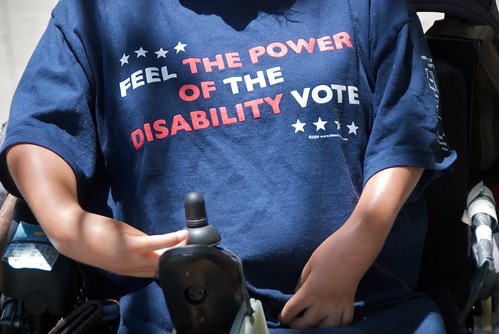[Trigger Warning for descriptions of violent thoughts of self harm]
Oh, by now, faithful readers, you know where we are about to go. We are about to go on a little journey into my mind, the scary place that it is, where I open the floor to discussion about the ways that, once again! Stars and Stripes has managed to get so much so wrong. Because tonight, gentle readers, as I clutch the place that might be close to where my duodendum is and sip my Korean Red Ginsing tea, which the lady at the market told me might help my indigestion, I am reminded once again that I am my mental health are nothing but a metaphor to be co-opted at someone’s convenience!
Let me give you a little background here, because the only online version I can scrape up is this e-version of the print edition, and while WAVE found no accessibility issues with it, I am not going to guarantee that it will be accessible to everyone or accommodating of everyone’s needs. It is, however, a way around their habit of not putting all of their content in their online version (and also allows deployed troops to access the daily paper as well). The front page has the story’s picture, of a white male soldier in Army Green uniform: a light green collared shirt, black tie, green jacket with various awards and pins, a black belt, a black beret, holding a rifle with a bayonet affixed to it. The text on the photo says “Model soldiers [break] Every detail counts when you’re trying to join the storied Old Guard”. The actual article starts on page 4 if you are so inclined to read.
The Old Guard is a ceremonial guard that headquartered out of Fort Meyer, VA, and performs most of its duties in Arlington National Cemetary, similar to the Navy’s Ceremonial Guard, in that they perform many military funerals daily with the cleanest of precision. Their military bearing is expected to be above and beyond that of any other in their branch of service. Their uniforms are expected to be ridiculously perfect, with exquisite attention to the finest aspects of the details, not missing a single loose thread or even a speck of lint. A scuff on your shoe could set you back a week in training. They stand grueling hours at “attention” (The Navy’s Ceremonial Guard does this while holding the business end of the rifle and keeping the butt parallel to the ground for hours, I do not know about the Army’s Old Guard. Full disclosure: I once and briefly dated a guy from the Ceremonial Guard). Everything you know about military bearing is wrong when you arrive for duty, and it is re-taught to “look better”, including the way you turn, march, stand, dress, and press your uniforms (you are even issued special dress white uniforms that are made to withstand the repeated ironing in the Navy Ceremonial Guard).
Do you see what I did there?
I was able to give you some brief background on the very strict regulations of the Old Guard and the Ceremonial Guard without using ableist language. I didn’t once have to compare soldiers or sailors who are required to iron their uniforms exactly right, or who are trained to notice when their medals are one sixteenth of an inch off from the proper dress line to someone who actually obsesses over things like drinking bleach or shoving cork screws in her eyes. Or what it would feel like to jump from a fifth floor balcony.
Because these, my gentle readers, are actual obsessions. They actually intrude on your thoughts and disturb your life, and are really very upsetting, I can assure you. They make you do things, like pull out your hair, burn yourself with a curling iron, wash your hands again and again, and pick at the little imperfections on your skin. Yes sometimes you even iron your uniform again and again and again because you just can’t get it right and double creases are the End of The Universe as We Know It, but it might be because you are certain that if you stop then you are going to iron your hand, not because your Leading Petty Officer is going to chew you out (or your whole division, I mean, does the article expect me to believe that the entire Old Guard has Obsessive Compulsive Disorder? Because that is not on the application!) but maybe because you recently thought that you might do something very harmful to someone you loved if you stopped holding that iron very tightly. Even if your LPO has put the fear of Cthulhu in you.
Being part of an elite military unit who is honored to be charged with memorializing the fallen and handing flags to their loved ones* or escorting the President or guarding the Tomb of the Unknown Soldier is a pretty powerful thing, I am sure. The end result of the intense training, of the weeks and weeks of repeated inspections and physical demands, might very well leave some people with OC tendencies or maybe even OCD outright I suppose — I am not a doctor I don’t know and I don’t pretend to know every experience — but it isn’t the same as living with a condition that sometimes (OK, often) inhibits your day to day ability to live, interact, and (here’s the important one) do your job because you are busy carrying out compulsions to get the damned obsessions out of your head.
Yeah, getting worked up over a uniform inspection? I bet it’s exactly like that!
Only, I’ve been there and done that and bought the cheap t-shirt (hell, I’ve been the OC girl who has had to prepare for uniform inspections!).
It isn’t anything like that at all.
*I want to also point out that the article, for those of you who aren’t able/don’t want to read it via the e-reader the requirements for Old Guard: Must be 5’10 or taller, must have combat experience, blah blabbitty blah. Nothing like another exclusionary Old Boys Club for the military, so they can sit around and pat each other on the backs about how Awesome! they all are. I might note, out of some Branch Pride that the Navy Ceremonial Guard frequently wins the Joint Service competitions and they have *gasp* women in their guard.
Oh, and those people receiving flags? Always widows. Always. Way to erase anyone else who might be a surviving loved one of a fallen troop, there S&S, Army, and anyone else involve. UGH!




